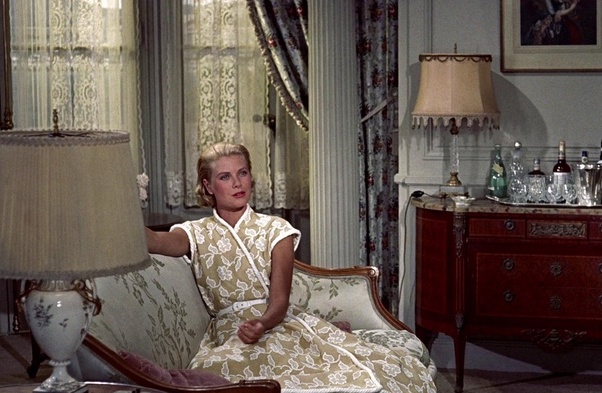Why Your Mystery Detective Needs to Take a Stand

The success of a mystery narrative is not solely dependent on a tightly woven plot. Often the charismatic, captivating characters make a mystery story shine, and none are more critical than your mystery detective.
This article will explore why your mystery detective needs to take a stand, not just solve crimes. It’s not just about creating a character that your readers will like, but rather crafting a character they deeply care about, one who resonates with their core beliefs, ethical values, and sparks their empathy.
A detective, after all, is not just a brain that solves puzzles. They are a lens through which we interpret the often chaotic, confusing, and morally ambiguous world. This lens needs to have color, focus, and perspective—it needs to take a stand. A well-rounded detective who expresses their convictions, struggles with dilemmas, and exhibits courage can offer the reader not just an exhilarating ride through a labyrinth of clues and suspects, but a journey of emotional and ethical exploration.
Let’s unravel the secrets of character development in whodunits and noir tales. Discover how to make your detective more than just a truth seeker, but a beacon of moral integrity that will engage your readers’ hearts as much as their minds. Through this, you can create a connection that will transform your stories from simple mysteries into unforgettable tales of intrigue, bravery, and human resilience.
The Heart of the Mystery: Engaging Readers with a Protagonist They Care About
In every compelling story, there’s a force that pulls us through the narrative. Yes, a twisting plot can entice us, and a meticulously crafted world can enchant us, but the characters often beckon us into the tale. Specifically, the protagonist – the hero of our journey – can turn a casual reader into a dedicated fan. But why is this?
Let’s start with the simple fact that stories are about people (or at least entities with human-like traits). Even in the most fantastical of worlds, human (or human-like) experiences, emotions, and dilemmas resonate with us. We need someone to relate to, root for, and journey with. Without a relatable protagonist, a story can feel distant and alien.
Now, let’s apply this principle to our mystery detectives. Your protagonist, in this case, the detective, is the one who’s going to lead us into the heart of the mystery. They’re our guide, confidante, and avatar in your created world. It’s through their eyes that we encounter the plot. If your readers can connect with the detective, they connect with your story more deeply.
But how do you make your readers care about your detective? Simple: by making them take a stand. A detective with a strong moral compass, who struggles with difficult decisions and confronts challenges, becomes someone we can relate to, admire, or criticize. These aspects humanize the your character, making them feel real and engaging.
Taking a stand also impacts the dynamics of the story. It adds depth to the plot by weaving in conflict, tension, and character growth elements. A detective who stands by their principles may clash with other characters or institutions, enhancing the plot with these interpersonal or societal tensions. Their journey in resolving the mystery may challenge their beliefs, leading to internal conflicts and compelling character development.
So, remember, a good mystery isn’t just about the whodunit, it’s also about the ‘who’ that’s solving it. Investing time in your protagonist, making them more than a mere instrument to progress the plot, but a character your readers care about is essential to crafting an engaging, memorable mystery.
Taking a Stand: Five Techniques to Transform Your Detective from Passive Observer to Active Advocate
Having discussed the importance of your detective protagonist taking a stand, it’s time to dive into the nuts and bolts of how you can actually make that happen. Here are five tried and true techniques, complete with examples, to help your detective leap off the page and straight into your readers’ hearts.
1. Give Your Detective Personal Stakes
Make the case personal for your detective. When the mystery’s outcome directly impacts your detective, their motivations become deeply personal and their stakes much higher. This draws readers in, rooting for the detective as they would for themselves.
Example: In Dennis Lehane’s ‘Gone, Baby, Gone’, private investigators Patrick Kenzie and Angela Gennaro take on a case involving a missing child from their own neighborhood, adding an intensely personal dimension to their mission.
2. Challenge Their Beliefs
Test your detective’s beliefs with cases that challenge their worldview. This leads to internal conflict and tension, and readers will be eager to see if and how their views evolve.
Example: In Arthur Conan Doyle’s ‘Sherlock Holmes’, the detective’s rigid belief in rationality and logic is often challenged by seemingly unexplainable phenomena, making the resolution all the more satisfying.
3. Make Them an Advocate for the Underdog
Having your detective stand up for the underrepresented or the downtrodden can forge a strong emotional connection with readers, who often root for the underdog themselves.
Example: In Sue Grafton’s alphabet series, detective Kinsey Millhone frequently stands up for clients who can’t protect themselves, making her an empathetic and principled advocate.
4. Set Them Against the System
Have your detective question or fight against societal or institutional corruption. This gives them a cause to stand for, and positions them as a moral compass within your narrative.
Example: Raymond Chandler’s Philip Marlowe, a private detective, often finds himself at odds with a corrupt legal system, enhancing his appeal as a man of principles.
5. Let Them Make Sacrifices
A detective who sacrifices their comfort, safety, or even their personal relationships for the sake of the case shows their dedication and commitment. This can make readers admire them, even when they disagree with the detective’s decisions.
Example: In Stieg Larsson’s ‘The Girl with the Dragon Tattoo’, Mikael Blomkvist risks his career and personal safety to uncover a dangerous conspiracy, earning the respect of readers despite the high cost.
Implementing these techniques to make your detective take a stand will add depth to your character and engage your readers emotionally, keeping them hooked to every twist and turn of your mystery tale. Remember, a detective who takes a stand doesn’t just solve mysteries, they become a part of them, transforming your narrative from a simple puzzle to a riveting journey of courage, resilience, and moral integrity.
Voicing Values: The Power of Protagonist Opinions in Taking a Stand
There’s no denying that actions speak louder than words. We’ve already discussed the importance of a detective who doesn’t just crack cases but also takes a stand. However, it’s equally important to remember that while a detective’s actions can make a significant statement, their voiced opinions can add another level of richness to their character. In fact, your detective’s articulated views can serve as the perfect cherry on top of the cake of their stand-taking.
Why are opinions so powerful? Because they provide a window into your detective’s mind, showcasing their values, biases, and unique perspectives. They humanize your detective, making them more relatable and engaging. Let’s delve into how you can use this to your advantage.
1. Opinions Drive Dialogues:
Detective stories are known for their dialogues – the sharp exchanges, the witty comebacks, the tense confrontations. You can create more dynamic and engaging dialogues by giving your detective strong opinions.
Example: In the ‘Harry Bosch’ series by Michael Connelly, Bosch’s outspoken criticism of bureaucracy and politics adds depth to his character and sparks many intriguing dialogues.
2. Opinions Reflect Values:
What your detective believes in says a lot about their character. Their views on justice, morality, society, or even smaller everyday issues, can help readers understand their core values and motivations.
Example: Robert B. Parker’s ‘Spenser’ has a distinctly sardonic perspective on Boston’s elite, revealing his disdain for hypocrisy and his grounded, no-nonsense nature.
3. Opinions Foster Emotional Connection:
Readers may agree or disagree with your detective’s views, but having opinions makes your detective more real, more human. It invites the reader to engage emotionally, sparking their feelings of agreement, disagreement, admiration, or even outrage.
Example: Sara Paretsky’s ‘V.I. Warshawski’, a fiercely feminist detective, frequently voices her strong opinions on women’s rights and equality, connecting deeply with readers who share or challenge these views.
4. Opinions Ignite Conflict:
Expressed opinions can lead to conflict externally with other characters and internally when circumstances challenge these opinions. This can add more tension and intrigue to your plot.
Example: In the ‘In Death’ series by J.D. Robb, detective Eve Dallas’s uncompromising views on justice often lead to clashes with authority figures, adding layers of conflict to the narrative.
While your detective’s actions may form the bulk of their character, their voiced opinions often add that extra oomph, making them more vibrant and relatable. So don’t be afraid to let your detective speak their mind. Their voiced beliefs, insights, and prejudices can be the final, powerful touch that takes their stand to the next level, transforming them from a mere character into a beloved (or debated) personality in your readers’ minds.
Sleuths with Stance: The Mystery Writer’s Secret Power Tool
It’s clear that the heart and soul of any mystery narrative is a detective who does more than just piece together clues. A detective who takes a stand, who has personal stakes, who voices their opinions, and fights for what they believe in, is a force that takes your narrative from being just another mystery to an unforgettable saga of suspense, courage, and character.
From Sherlock Holmes’s staunch belief in reason to Philip Marlowe’s battle against corruption, detectives who take a stand have long captured the imagination of readers, keeping them enthralled till the last page. And as we’ve seen, this isn’t accidental. It’s a testament to the power of crafting a detective who isn’t just a cog in the mystery machine, but a fully fleshed-out character with principles, opinions, and a strong moral compass.
As a mystery writer, your detective is your secret power tool. When crafted well, they can not only unravel the riddles in your plot, but also engage your readers emotionally, prompting them to reflect, empathize, or even challenge their own views.
When you sit down to pen a mystery, make your detective take a stand. Let them challenge the system, advocate for the underdogs, or question their beliefs. Let them voice their opinions, articulate their values, and connect with your readers at a deeper, more personal level. Because at the end of the day, the detective takes a stand that transforms your mystery from a puzzle into a captivating journey, making your narrative not just a story, but an experience to be savored, remembered, and revisited.
Need help with your mystery writing? My personalized coaching guides you through a stuck place or the entire novel writing experience.
Photo by Jonas Kakaroto on Unsplash






